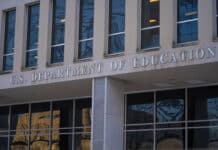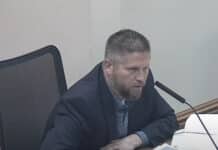
Social-emotional learning (SEL) is widely used in public schools and is now infiltrating private schools, including Christian schools. This article will examine the suitability of SEL in any school, and especially in Christian schools. But first we need to understand what SEL is. It is defined, at least in theory, in a recent article in Education Week, called: “What is SEL Anyway? Seven Experts Break it Down.” This Education Week article, however, does not actually define SEL; it does mention processes like “control emotions,” “build self-esteem,” and “facilitate empathy.”
What then is SEL? As we will see below, SEL is a radical education program that indoctrinates kids with the basic principles of cultural Marxism. The godfather of cultural Marxism, Italian Marxist Antonio Gramsci (1891-1937), said that for the Marxist revolution to succeed, it must take control of the educational program of targeted nations. SEL is a key component of the cultural Marxist takeover of our education system (as are the new Minnesota Teacher Licensing standards).
CASEL is the command center for SEL
CASEL (Consortium on Academic & Social Emotional Learning) is a nongovernmental organization (NGO) that says its one purpose is to “integrate SEL into every child’s education, pre-K through 12.” CASEL is also the delivery system for CRT.
To understand CASEL is to understand SEL, and CASEL makes an important statement about itself on its webpage, which says:
“An equity lens is important when developing SEL standards, particularly to ensure that the standards do not unintentionally reinforce implicit power and privilege inequities … Consistent with the pursuit of educational equity, we recently offered the concept of transformative SEL to reflect our interest in making explicit issues such as power, privilege, prejudice, discrimination, social justice, empowerment and self-determination in the field of SEL with the goal of developing justice-oriented, global citizens.”
CASEL here states that an equity lens is required to understand and implement SEL. Equity is Marxism; it’s the core concept of Marxism. It not only means equal outcomes, it also requires the elimination of most everything that has been important historically in our education system and Western culture. This includes eliminating equal opportunity, as well as eliminating the following: student decision-making on their own majors and minors, objective grading systems, admissions and scholarships based on merit, parental involvement in education, patriotism, genuine history, the importance of mathematics, and the list goes on. No culture can have equity and freedom at the same time. They are incompatible concepts.
As stated above, CASEL and SEL are committed to creating “global citizens.” There are no global citizens without global government. In his recent book “Covid-19 and the Great Reset,” Klaus Schwab, one of the globalists behind SEL, explained that most people mistakenly see nations as being comparable to ships on the sea — some are bigger, some are smaller, some are more sophisticated, and so on. This is the wrong way to see nations, said Schwab. The proper way to see nations, he said, is to view nations as apartments on one big ship. That is the goal of CASEL and SEL — to indoctrinate our kids to see themselves as global citizens for whom global government is natural, desirable and right — persons who will give up their freedom and national citizenship and become part of a global cabal believing they are doing the right thing.
Equity and social justice are accurately described by the slogan: “From each according to his ability, to each according to his needs,” a statement popularized by Karl Marx. Equity and social justice are also the central concepts of SEL. “Cultural Marxism” is now the dominant form of Marxism in Western cultures. Formulated by Gramsci, cultural Marxism holds that for the Marxist revolution to succeed, it must transform a nation’s culture. Doing so, said Gramsci, requires controlling the media and the education system of targeted nations — exactly what we are seeing today, exactly what SEL is all about.
CASEL and SEL embrace Critical Race Theory (CRT), which includes the radical doctrine of “white supremacy,” the notion that all whites are inherently racist.
Christian schools that teach SEL often teach what is called “Christian” SEL, also called “Biblical” SEL. The most commonly used “Biblical” SEL curriculum is “God’s design for Friendship.” (See: FRIENDZY BIBLICAL SEL FRIENDSHIP CURRICULUM Teaching Guide: We Need Each Other.) Friendzy largely relies on Genesis 2:18 to argue that this is a Biblical curriculum. This verse reads: “The Lord God said: ‘It is not good for man to be alone.’” Friendzy interprets this verse to be speaking about needed friendship, but that is not true. The context of the verse clarifies that it is speaking only about the marriage relationship. God met that need by creating a woman and bringing her to the man. The two then became “one flesh.” They married.
This curriculum doesn’t even mention marriage in passing, however, and it also ignores the fact that Genesis 1 and 2 state that God created two and only two genders. These truths are ignored because the Marxists behind SEL are opposed to marriage and avidly support transgenderism. Most anything can be proven by the Bible if its statements are taken out of context.
This fraudulent interpretation of Genesis 2:18 demonstrates that there is no genuine Biblical foundation for SEL. It also clarifies that the Friendzy curriculum is based on politics, not scholarship, and on manipulation, not information. An example of the manipulation that characterizes SEL is that students are commonly given discussion questions that begin with “how did it feel?” Friendzy recommends questions like this: “How did it feel when you heard your classmates positively describing you?” In this way students’ rational thinking is bypassed, and they are directed to their emotions — where they are easily manipulated.
What other beliefs are incorporated into SEL activities and by the Friendzy form of SEL?
Collective good: Both the teaching and the exercises that are central to SEL are structured to have students see themselves as part of groups and not as individuals. This is one reason why SEL cannot be restructured to be Christian in nature. When speaking with the woman at the well (John 4:1-26), Jesus could have related to her as a member of three groups: a woman, a Samaritan, and an adulterer. Jesus, however, spoke to her as an individual, someone who needed the salvation He was bringing her. He looks at us the same way — as individuals for whom He lived, died, and rose again.
Empathy: According to education scholar James Lindsay, “empathy,” in the context of SEL, includes approving the lifestyles of LGBTQ persons and affirming the transgender movement. Since every cell in a person’s body is either male or female, however, it is impossible for someone to actually change gender. They can impersonate the other gender, but not become it.
SEL assessments
Through continual data collection, assessments, and surveys, SEL measures how well each student, each classroom, and each school is meeting the objectives of the radical program described above. Students’ answers to these non-academic surveys will be reported as “competencies” and will become part of the student’s permanent record. These assessments violate students’ privacy rights, and students should be advised that their answers will follow them for the rest of their lives.
For example, CASEL emphasizes that students will be assessed on “empathy,” which in the SEL context, as mentioned above, means the acceptance of LGBTQ activities as well as their support of transgenderism. This by extension means support for administering gender-changing hormones and sex-change surgeries on minors.
The Rand Corporation, a firm that designs surveys for measuring SEL outcomes, says its surveys will measure attitudes and beliefs along with emotional stability and the like. Because these surveys are based on the “equity” standards of SEL, they will measure students’ progress on concepts like “group consciousness” and adoption of “global citizenship,” as well as on students’ “beliefs” (i.e., religious and moral values).
Expect the surveys to monitor agreement with “sustainable development goals (SDGs)” and other major doctrines of cultural Marxism. UNESCO, an internationalist organization and branch of the UN, says in SEL for SDGs that SEL requires “a radical change in our education systems.” One such change will be students not aligned with these “competencies” being subjected to “extensive interventions” to bring them up to speed. And if this process follows typical Marxist practice, non-conforming students will be denied most opportunities for success of any kind.
By looking at these SEL beliefs, it becomes clear, as stated above, that SEL is an educational program designed to indoctrinate students with a cultural Marxist worldview. Cultural Marxism is atheistic and rejects all morality. This is the main reason Christian schools should not teach SEL. Marxism is at odds with Christianity. We would do well to heed the warning of the Apostle Paul who said:
“See to it that no one takes you captive through hollow and deceptive philosophy, which depends on human tradition and the elemental spiritual forces of this world rather than on Christ.”
SEL with its cultural Marxism fits this admonition perfectly.
A more detailed version of this article is available here.
















